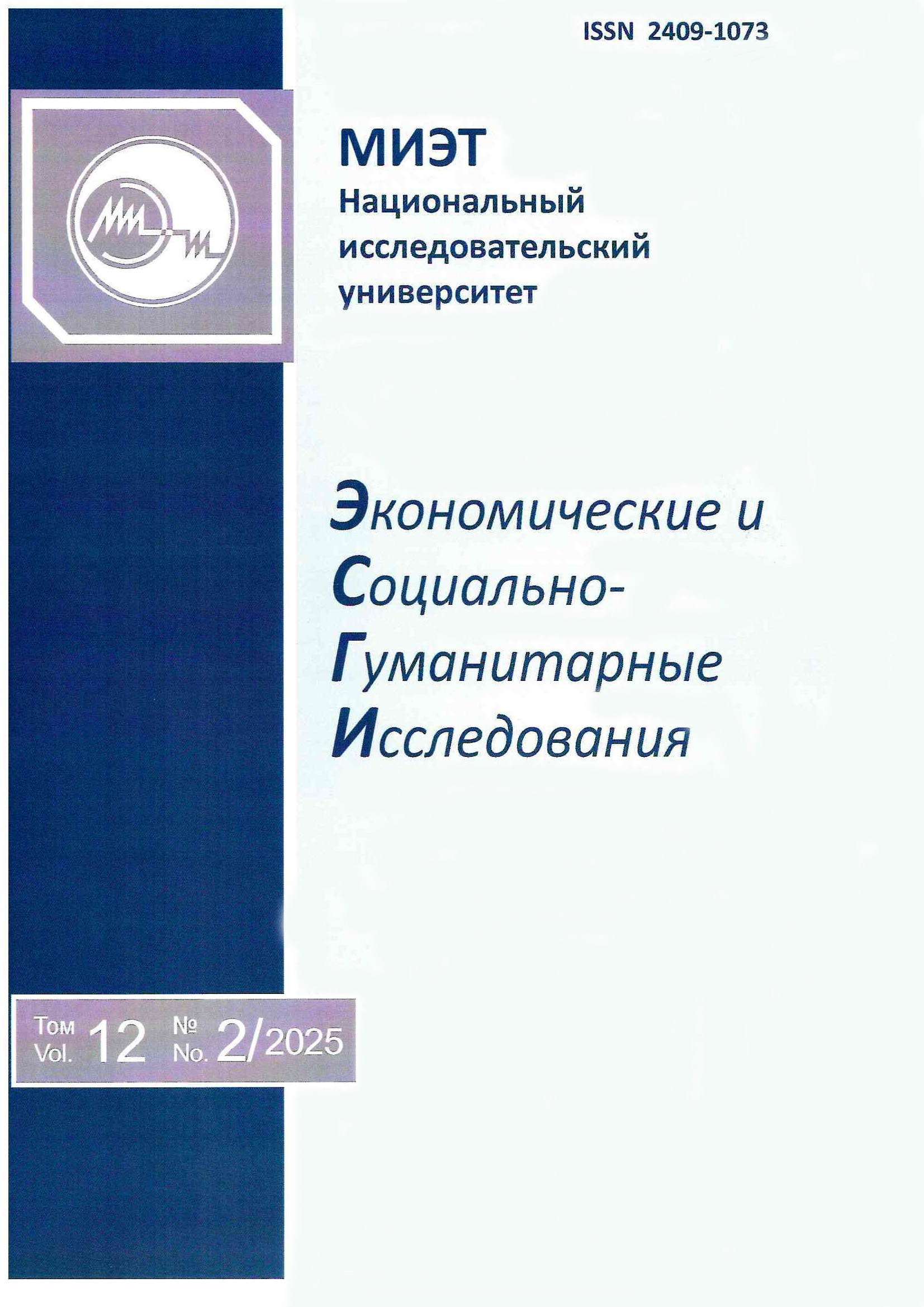employee
Moscow, Russian Federation
MIET (editorial office, editor-in-chief)
Russian State Social University (Department of Political Science and Applied Political Work, Professor)
employee
National Research University "MIET" (Department of Philosophy, Sociology and Political Science, Professor)
Moscow, Russian Federation
UDC 355.01
A brief analysis of the phenomenon of hybrid war and the existing military-theoretical and political-ideological approaches to its essence is carried out. It is emphasized that hybrid war has a combined charcter and is a new instrument of modern interstate confrontation. The network character of hybrid war is particularly highlighted, aimed at military and economic exhaustion of the enemy, in connection with which its information component becomes a core element, militarizing the entire information space. It has been summarized that supporters of hybrid warfare rely on destructive processes leading to socio-political crises, hacking of the state from within, separatism, and loss of state sovereignty.
hybrid war, hybrid threats, military conflicts, information war, international relations
1. Bartosh A. “Strategy and Counterstrategy of Hybrid War”. Voyennaya mysl’ = Military Thought 10 (2018): 5—20. (In Russian).
2. Gapich A. E., Lushnikov D. A. Technology of Color Revolutions. 2nd ed. Moscow: RIOR; Infra-M, 2014. 126 p. (In Russian).
3. Gareyev M. A. “Strategic Deterrence is the Most Important Direction of National Security Protection of Russia in Present-Day Conditions (Report)”. Vestnik Akademii voyennykh nauk 4 (25) (2008): 4—14. (In Russian).
4. Hobbes Th. Leviathan. Rev. student ed. Ed. R. Tuck. Cambridge: Cambridge Up, 1996. 618 p.
5. Hobbes Th. Man and Citizen: (De Homine and De Cive). Ed. D. Gert. Indianapolis, IN: Hackett Publ. Co., 1991. 394 p. Hackett Classics.
6. Dereshko B. Yu. “Moral and Psychological Support of Confrontation in Hybrid Warfare: Legal Aspects”. Vestnik voyennogo prava 1 (2016): 55—60. (In Russian).
7. Egorchenkov D. A., Danyuk N. S. “Theoretical and Ideological Approaches to Studying the Phenomenon of ‘Hybrid Wars’ and ‘Hybrid Threats’: Russia’s Perspective”. Vestnik Moskovskogo universiteta ser. 12 Politicheskiye nauki = Lomonosov Political Science Journal 1 (2018): 26—48. (In Russian).
8. Kovalev A. A. “Anthropological Aspects of Hybrid Warfare as a New Generation War”. Vestnik Vyatskogo gosudarstvennogo universiteta = Herald of Vyatka State University 2 (152) (2024a): 7—17. (In Russian). https://doi.org/10.25730/VSU.7606.24.017
9. Kovalev A. “Information Warfare: Values, Ideological Confrontations and Ways of Defense”. Sotsium i vlast = Society and Power 3 (101) (2024b): 7—23. (In Russian). https://doi.org/10.22394/1996-0522-2024-3-07-23
10. Kovalev A. A. “International Humanitarian Law in the Era of Unconventional Wars: Challenges and Prospects”. Vestnik Tverskogo gosudarstvennogo universiteta ser. Filosofiya = Vestnik Tver State University ser. Philosophy 1 (67) (2024c): 49—61. (In Russian). https://doi.org/10.26456/vtphilos/2024.1.049
11. Marx K., Engels F. The Communist Manifesto. 1888 transl. ed. Transl. S. Moore. San Diego, CA: Booklover’s Library Classics, 2022. 103 p.
12. Messner E. E. The World Insurgency. Moscow: Kuchkovo pole, 2004. 511 p. (In Russian). Geopoliticheskiy rakurs.
13. Sazonova K. “Hybrid Warfare: International Law Dimension”. Pravo. Zhurnal Vysshey shkoly ekonomiki = Law. Journal of the Higher School of Economics 4 (2017): 177—187. (In Russian). https://doi.org/10.17323/2072-8166.2017.4.177.187
14. Wither James K. “Making Sense of Hybrid Warfare”. Connections QJ 15.2 (2016): 73—87. https://doi.org/10.11610/Connections.15.2.06
15. Filiminov G., Danyuk N. “ ‘Hybrid War’: Interpretations and a Reality”. Svobodnaya mysl = Free Thought 3 (1663) (2017): 17—24. (In Russian).
16. Fridman Ofer. “A ‘Hybrid War’ of Terms”. Vestnik MGIMO-Universiteta 5 (50) (2016): 79—85. (In Russian).
17. Kharitonova N. I. “CSTO and the Problem of Hybrid Warfare”. Mezhdunarodnaya zhizn’ = International Affairs 2 (2024): 28—37. (In Russian).
18. Tsygankov P. A. (auth., ed.), Radikov I. V., Achkasov V. A. et al. “Hybrid Warfare” in the Chaotizing World of the 21st Century: [joint monograph]. Moscow: Moscow State Up, 2015. 384 p. (In Russian).
19. Chvarkov S. B., Lihonosov A. G. “New Polivectoral Character of the Russia Security Threats, the Increasing Specific Weight of the ‘Soft Force’ and the Ways of Contradiction on the International Arena”. Vestnik Akademii voyennykh nauk 2 (59) (2017): 27—30. (In Russian).
20. Chekinov S. G., Bogdanov S. A. “About Nature and Contents of New Generation War”. Voyennaya mysl’ 10 (2013): 13—24. (In Russian).
21. Aron R. “The Evolution of Modern Strategic Thought”. The Adelphi Papers 9 (54) (1969): 1—17. https://doi.org/10.1080/05679326908448124
22. Boda Mihály. “A hibrid háború etikája: az igazságos hibrid háború elmélete”. A hadtudomány aktuális kérdései I. Ed. Miklós Szabó. Budapest: Ludovika Egyetemi Kiadó, 2022. 95—109. (In Hungarian).
23. Gray C. S. “Carl von Clausewitz and the Theory of War”. War, Peace and International Relations: An Introduction to Strategic History. By C. S. Gray. London: Routledge, 2007. 15—30.
24. Hoffman Frank G. Conflict in the 21st Century: The Rise of Hybrid Wars. Arlington, VA: Potomac Institute for Policy Studies, 2007. iv, 72 p.
25. Johnson James Turner. “Chapter VI — Just War Tradition and Low-Intensity Conflict”. Legal and Moral Constraints on Low-Intensity Conflict. Eds A. R. Coll, J. C. Ord, S. A. Rose. Newport, RI: Naval War College, 1995. 147—170.
26. Mansoor Peter R. “Hybrid Warfare in History”. Introduction. Hybrid Warfare: Fighting Complex Opponents from the Ancient World to the Present. Eds W. Murray, P. R. Mansoor. Cambridge: Cambridge Up, 2012. 1—17.
27. Liang Qiao, Xiangsui Wang. Unrestricted Warfare: China’s Master Plan to Destroy America. Transl. S. Pollak. Brattleboro, VT: Echo Point Book & Media, 2015. 212 p.
28. Pfaff C. Anthony. “Proxy War Ethics”. Journal of National Security Law and Policy 9 (2) (2017): 305—353.









